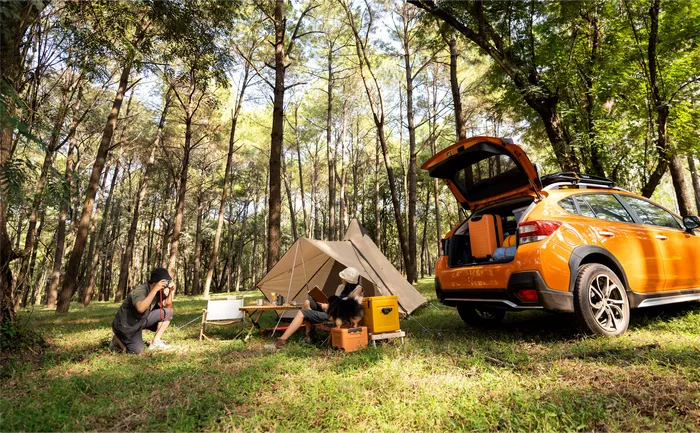Car camping, the practice of using your vehicle as a temporary shelter while camping, has gained popularity in recent years among outdoor enthusiasts and travelers. It offers a convenient and flexible way to explore the great outdoors without the need for traditional camping gear or designated campsites. However, the legality of car camping varies depending on location and local regulations. In this article, we will delve into the legal aspects of car camping, exploring the regulations and guidelines that govern this practice in different areas.
Understanding the Legal Landscape
The legality of car camping is determined by a complex interplay of local ordinances, state laws, and federal regulations. While some areas explicitly permit car camping in designated areas, others strictly prohibit it due to safety concerns, environmental considerations, or land ownership regulations.
Local Ordinances and Regulations
Many cities and municipalities have specific ordinances that address overnight parking and camping within city limits. These ordinances often prohibit overnight parking in public spaces or restrict camping to designated campgrounds. Violating these ordinances can result in fines or even towing of the vehicle.
Before embarking on a car camping trip, it is essential to research the local regulations governing overnight parking and camping. This information can usually be found on city or county websites or by contacting the relevant municipal authorities.
State Laws
State laws regarding car camping can vary widely, depending on factors such as land use policies, conservation efforts, and public safety concerns. Some states have designated areas where overnight parking and camping are permitted, such as state parks or national forests. These areas often have established campsites with amenities such as restrooms, picnic tables, and fire pits.
In contrast, other states may have stricter regulations regarding overnight parking on public lands or along highways. It is crucial to familiarize oneself with the specific laws and regulations of the state(s) being visited to avoid any legal issues while car camping.
Federal Regulations
On federal lands, such as national parks, national forests, and Bureau of Land Management (BLM) areas, the regulations governing car camping can vary depending on the managing agency and the specific designation of the land.
Some federal lands have designated campgrounds where car camping is permitted, while others may allow dispersed camping in designated areas. Dispersed camping typically requires camping a certain distance away from developed sites and following Leave No Trace principles to minimize environmental impact.
It is essential to consult the regulations and guidelines provided by the managing agency before engaging in car camping on federal lands. Failure to adhere to these regulations can result in citations, fines, or even expulsion from the area.
Private Property Rights
In addition to public lands, car campers must also consider the rights of private property owners. Camping on private property without permission is trespassing and is illegal. Even parking overnight in a vehicle without camping gear may be prohibited in some areas if it is considered trespassing by the property owner.
Before parking or camping on private property, it is crucial to obtain permission from the landowner or seek alternative accommodations. Failure to do so can result in legal consequences and strained relationships with property owners.
Tips for Responsible Car Camping
While the legality of car camping depends on various factors, there are some general guidelines that all car campers should follow to ensure a safe and enjoyable experience:
1. Research Local Regulations: Before embarking on a car camping trip, research the local regulations governing overnight parking and camping in the area(s) you plan to visit.
2. Use Designated Campgrounds: Whenever possible, use designated campgrounds or established campsites that are designated for overnight parking and camping.
3. Practice Leave No Trace: Follow Leave No Trace principles to minimize your environmental impact while camping, including properly disposing of waste, respecting wildlife, and leaving the campsite as you found it.
4. Respect Private Property: Always obtain permission from landowners before camping on private property, and respect any posted signs or restrictions.
5. Be Considerate of Others: Keep noise levels down, respect quiet hours, and be considerate of other campers and nearby residents.
By following these guidelines and respecting local regulations, car campers can enjoy the freedom and flexibility of exploring the outdoors while minimizing their impact on the environment and avoiding legal issues. Whether you’re planning a weekend getaway or a cross-country road trip, understanding the legal aspects of car camping is essential for a safe and enjoyable experience.
Conclusion
Car camping offers a convenient and flexible way to explore the outdoors, but it is essential to understand and adhere to the legal regulations governing overnight stays in vehicles. By researching local laws, obtaining permission when parking on private property, and practicing Leave No Trace principles, car campers can enjoy their adventures while respecting the environment and the law. Remember, the key to a successful car camping trip is preparation and awareness of the legal landscape in which you are traveling.

